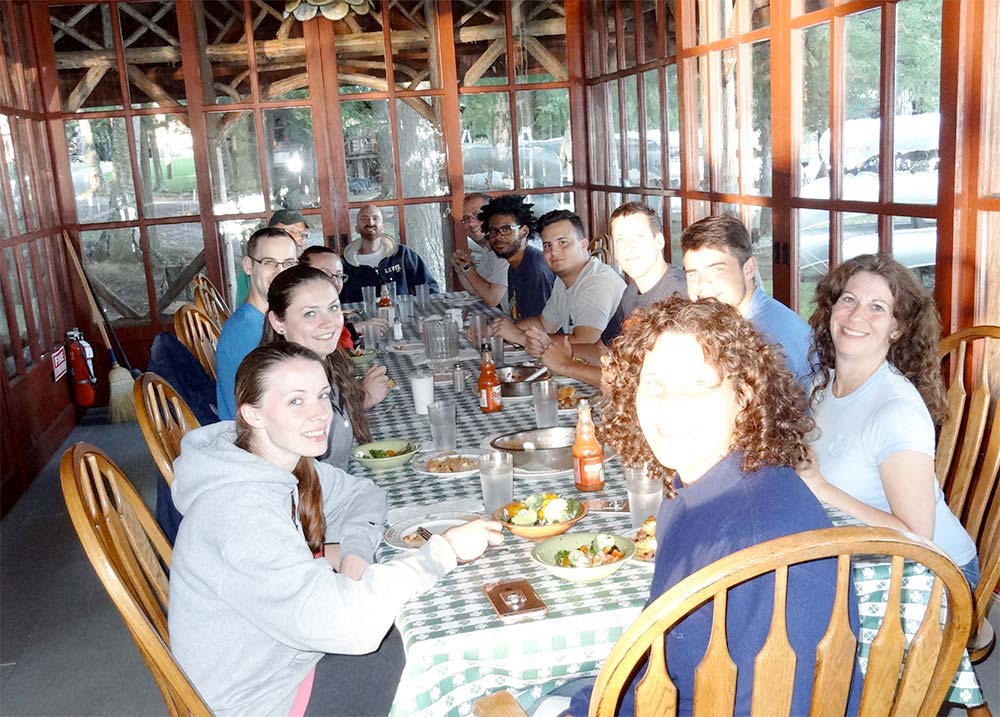Newsletter Detail
By Evan Faulkenbury, assistant professor, History Department
During Labor Day weekend, 18 majors and five faculty members from SUNY Cortland’s History Department visited Raquette Lake. The department has recently developed a relationship with the rich history and resources available at Camp Huntington, and this year was a first for students to earn one credit hour for participation in HIS: Raquette Lake Field Experience. Not only did students enjoy time on the lake and the ropes course, they dove into the history of the Durant family, the buildings of Camp Pine Knot, and the wider historical impact of manipulating the environment. Students worked in teams to complete an “artifact project,” where they selected one item from among the treasure trove of left-behind items, researched it, and presented to the whole group on their findings.
With Camp Huntington as our backdrop, students and faculty also had workshops on the study of history and what careers are available to graduates. We brainstormed options, and students left with a clearer idea of potential job opportunities. Why be a history major? In short, because it enables students to become creative thinkers, researchers, writers, presenters and leaders in society.
As a brand new professor at SUNY Cortland, my first visit to Camp Huntington was invaluable. Honestly, I wasn’t sure what to expect. I had researched the camp, and my fellow history colleagues had shared their enthusiasm for Raquette Lake, but I was still nervous. As soon as we arrived, my anxieties vanished. Students and faculty quickly bonded, helped along by the setting steeped in such a rich history within the Adirondacks. In one weekend, our students learned as much as many do in a semester about what it means to practice history and what they can do with a history degree. The department plans to make the trip an annual tradition for students to earn one credit hour, but our time together is more than a class: it’s a chance to surround ourselves in history and create stronger interpersonal relationships.

